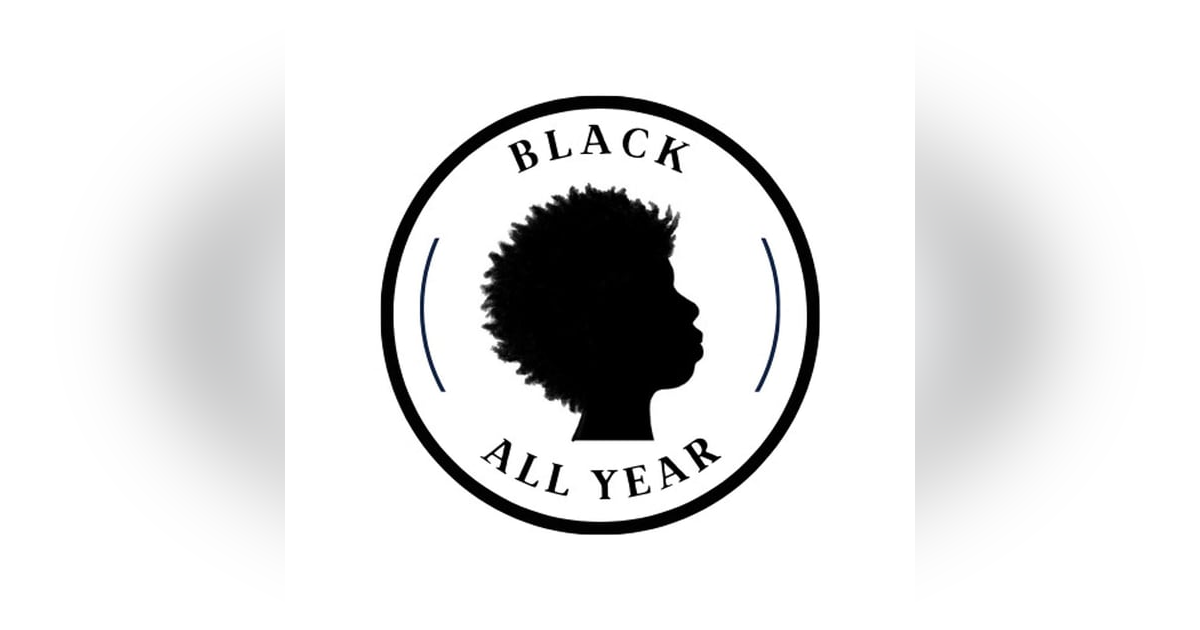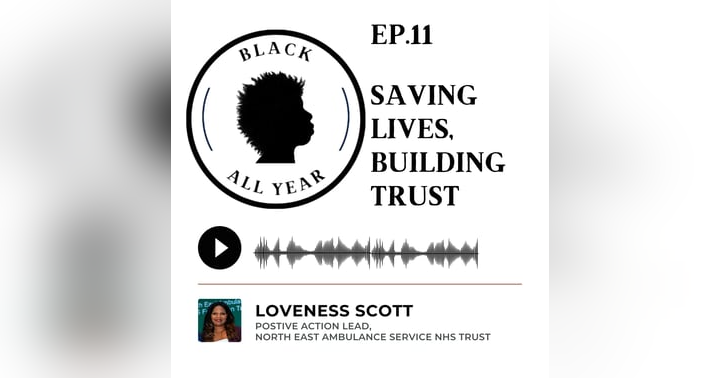Representation Matters: Reflections on Being the Only Black Voice in the Room

This week, I’m revisiting an episode from September 2022—almost two years ago now. At that time, Black All Year was primarily event-based, with the podcast simply serving as the audio record of those events. But this particular episode marked a significant shift. It was one of the first times I recorded a dedicated podcast episode, and it was the first time I did so alone.
As you listen, you’ll notice a lot of passion and frustration in my voice. I want to assure you that I’m fine now, but this episode was born out of a very real and upsetting experience that I’d like to share with you.
A Moment of Silence That Spoke Volumes
The event that triggered this episode happened during a meeting where we were discussing the worsening experiences of global majority people—Black and brown communities. The public was observing, and I fully expected the members of the group to acknowledge this alarming trend and discuss actionable steps. But instead, there was silence. The conversation moved on to other topics as if the deteriorating conditions were not even worth mentioning.
I sat there, growing increasingly angry, waiting for someone to say something. Eventually, I was the one who had to speak up. The reaction I received was dismissive at best, and at worst, I felt like I was being gaslit—told that despite the worsening experiences, everything was fine. It was as if I had been put in my place, like a naughty schoolchild, told to be quiet and stay in my lane.
Why I Created Black All Year
I founded Black All Year out of frustration with how Black History Month was treated in the UK. Every October, I’d be invited to speak about racism and my experiences as a Black female leader. But as soon as October ended, it felt like those issues no longer mattered. The flurry of activity from companies and organisations around Black History Month would die down, and the rest of the year would pass without much action or meaningful change.
I created Black All Year to challenge that notion—to emphasise that we are not just Black in October, but all year round. This podcast was a way to keep the conversation going, to ensure that the focus on our experiences and challenges doesn’t fade with the turning of the calendar page.
The Importance—and Burden—of Representation
In this episode, I wanted to talk about something deeply personal: representation. Representation matters. It matters when little Black girls watch a trailer for *The Little Mermaid* and see a character who looks like them. It matters when people see someone like me in a senior leadership role and realise that it’s possible for them too. But there’s a darker side to representation, especially when it’s just one person or a tiny minority in a room of hundreds or thousands.
I often find myself as the only Black person in a room, or maybe one of two. While I’m used to it, it comes with a heavy burden—the burden of being “the Black voice,” of representing all Black people. When issues affecting Black and brown people come up, I know that if I don’t speak out, no one else might. If someone says something racist, I know it’s on me to call it out because others likely won’t.
This responsibility is exhausting. It means that every flaw, every mistake, every word I say is scrutinised as if it represents all Black people. On top of the emotional labour of just existing in these spaces, I have to be constantly aware of how my actions might reflect on an entire community.
The Toll of Being the Only One
There are times when I’m just tired—tired of being the only Black person in the room, tired of always having to represent, tired of feeling unsafe. But I know I have to go. I have to be there. If I’m true to who I am, I have to represent. But it’s a heavy burden to carry, and it’s important that organisations understand the toll this takes on those who are in these positions.
For all the companies patting themselves on the back for having representation, I urge you to consider the type of representation you’re fostering. Because being the only one or one of two in a room full of hundreds is not enough. It’s not enough to tick a box and move on. It’s not enough to hire someone and leave them to shoulder the burden of representation alone. And it’s definitely not enough to expect that labour for free.
A Call for Change
As we approach another Black History Month, I hope for change. I hope that I can walk into a room of hundreds and see more than just a handful of people who look like me. I hope that others, who don’t look like me, will step in and speak out so that I can take a break, just for once.
But until that day comes, I’ll keep going. I’ll keep representing because it’s my duty and my responsibility. And if I can change even one mind, then all the effort will have been worth it.
I recorded this episode nearly two years ago, and sadly, not much has changed. But with Black History Month on the horizon, and in the wake of recent far-right riots that targeted ethnically minoritised communities, perhaps this year we can channel that shock, horror, and anger into real change.
As I mentioned earlier, I’m okay. Yes, I get upset, angry, and tired, but I’m fine. I hope this week’s podcast gives you something to think about and share with others.








